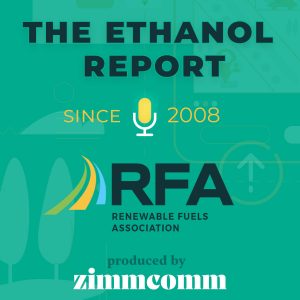 Oral arguments before the U.S. Supreme Court are scheduled for Tuesday morning in the case of HollyFrontier Cheyenne Refining, LLC, et al. v. Renewable Fuels Association, et al over small refinery exemptions under the Renewable Fuel Standard (RFS).
Oral arguments before the U.S. Supreme Court are scheduled for Tuesday morning in the case of HollyFrontier Cheyenne Refining, LLC, et al. v. Renewable Fuels Association, et al over small refinery exemptions under the Renewable Fuel Standard (RFS).
The case was decided unanimously last year by the U.S. Court of Appeals for the Tenth Circuit, which held that only small refineries that have remained continuously exempt from obligations under the RFS are eligible for future extensions of the compliance exemption.
The Biofuels Coalition, comprised of the Renewable Fuels Association, the National Corn Growers Association, National Farmers Union, and the American Coalition for Ethanol, will share time during Tuesday’s oral arguments with the U.S. Department of Justice, which will be representing the U.S. Environmental Protection Agency. EPA announced in February that it supports the Tenth Circuit’s decision.
“EPA had exceeded its authority by creating new exemptions when the statute only authorizes the agency to extend the temporary, time-limited exemption that Congress provided to small refineries. Because none of the three refineries involved in this case still had that exemption, there was nothing for EPA to extend,” the coalition noted. “The Tenth Circuit Court’s ruling is consistent with the Clean Air Act, congressional intent, and the purpose of the RFS. We will continue to stand up for the farmers and renewable fuel producers across the country whose livelihoods have been harmed by abuse of the refinery exemption program. We look forward to presenting our arguments before the Supreme Court, and we believe the Tenth Circuit decision should be affirmed.”
Matthew W. Morrison, Partner, Pillsbury Winthrop Shaw Pittman LLP, will represent the Biofuels Coalition in Tuesday’s oral arguments, which will air live on C-SPAN, starting at 10 a.m. EDT. Audio and transcripts of the proceedings will be made available on the Supreme Court website.
 The Environmental Protection Agency has filed a motion asking the the U.S. Court of Appeals for the Tenth Circuit to vacate and remand three last-minute small refinery exemptions granted to Sinclair by the previous administration.
The Environmental Protection Agency has filed a motion asking the the U.S. Court of Appeals for the Tenth Circuit to vacate and remand three last-minute small refinery exemptions granted to Sinclair by the previous administration.


 The
The  Comments from the
Comments from the 


 The
The  Indiana Governor Eric Holcomb this week vetoed legislation that would have a negative impact on sales of 15% ethanol fuel (E15) in the state.
Indiana Governor Eric Holcomb this week vetoed legislation that would have a negative impact on sales of 15% ethanol fuel (E15) in the state.  The biofuels industry had its day in the Supreme Court April 27 to present oral arguments in the case of
The biofuels industry had its day in the Supreme Court April 27 to present oral arguments in the case of  Matthew W. Morrison, Pillsbury Winthrop Shaw Pittman LLP, represented
Matthew W. Morrison, Pillsbury Winthrop Shaw Pittman LLP, represented  Oral arguments before the U.S. Supreme Court are scheduled for Tuesday morning in the case of HollyFrontier Cheyenne Refining, LLC, et al. v. Renewable Fuels Association, et al over small refinery exemptions under the Renewable Fuel Standard (RFS).
Oral arguments before the U.S. Supreme Court are scheduled for Tuesday morning in the case of HollyFrontier Cheyenne Refining, LLC, et al. v. Renewable Fuels Association, et al over small refinery exemptions under the Renewable Fuel Standard (RFS).